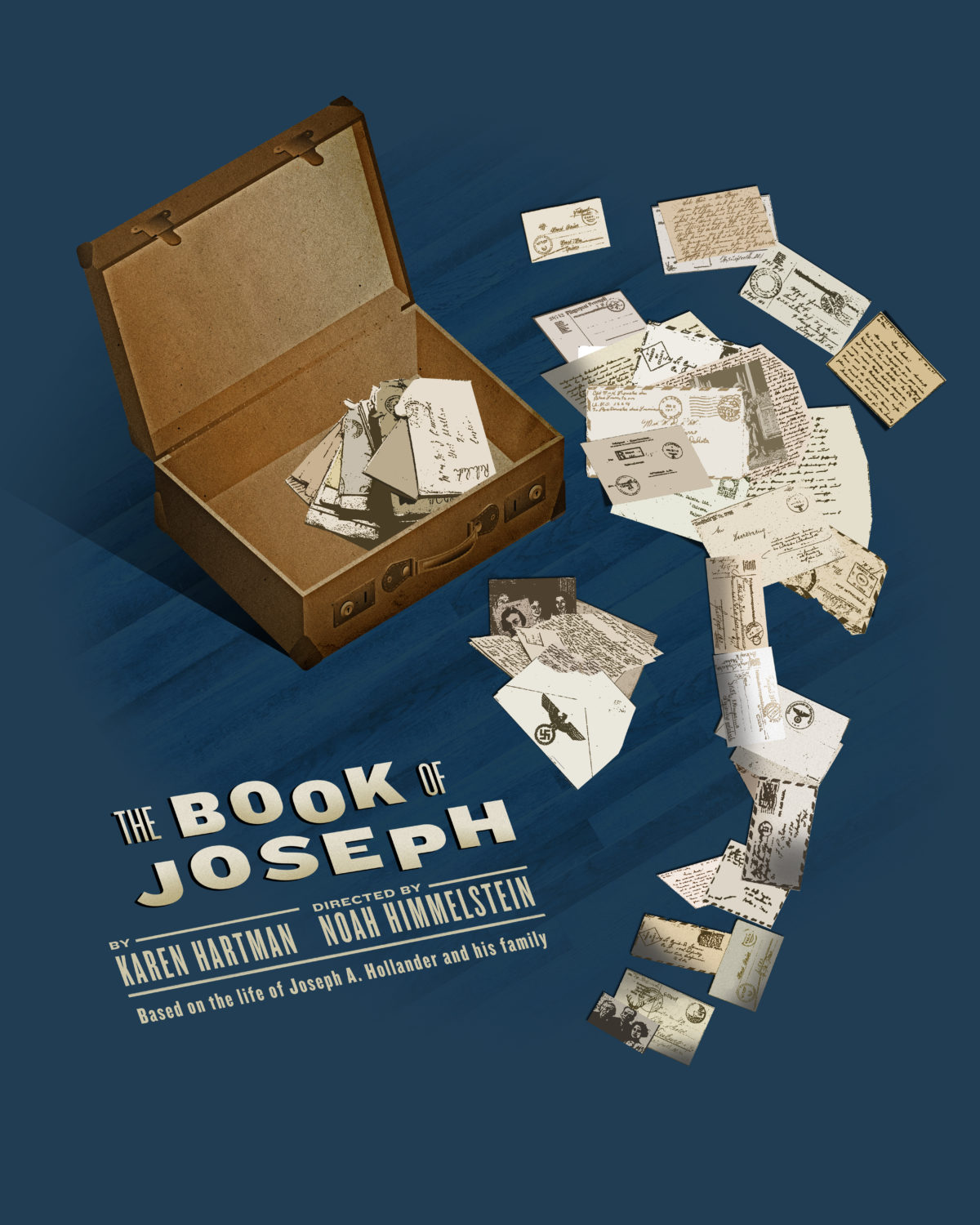The Book of Joseph: On Researching Stories

Playwright Karen Hartman and author and native Baltimorean Richard Hollander were kind enough to sit down with us and talk a little about their experiences with creating “The Book of Joseph” and bringing the story of Richard’s family to life.
In this clip Karen and Richard discuss some of the research they did for both the play and the original book.
Interview by JMM Marketing Manager Rachel Kassman. Filming by Carmen Venable. This interview was filmed on April 11, 2018 at the Everyman Theatre in downtown Baltimore, MD.
“The Book of Joseph” runs at the Everyman Theatre May 9 –June 10, 2018. It’s companion exhibit, “The Book of Joseph: Giving Voice to the Hollander Family,” is on display at the Jewish Museum of Maryland April 22 – June 3, 2018.
Transcript:
Karen Hartman: Well, the book is a book of the letters from the Krakow ghetto, and because I was really excited in telling the story, not just of what is within the letters, so those are– that occupies
Krakow between nineteen thirty-nine and nineteen forty-two, but this story of how the letters came down in this family.
I was really hot on the trail of the next two generations of Hollanders. So, I interviewed Rich, and I interviewed Craig Hollander as well, who is now a historian, who writes about– he focuses on letters– he focuses on letters from the slave trade. So I got a lot from those conversations.
I flew to Florida to interview this, well he’s not a boy anymore, but there was a boy whom Joseph Hollander took on as his ward, in order to help him gain entry into the United States, Arnold Spitzman, and he was alive and living in Florida, and his son who is much younger wanted to talk, and he wanted to talk, and so, I heard his point of view as well.
I asked Rich for later letters between his parents. And I did a fair amount of just general research about the period, of which there is lots and lots and lots written so, it’s impossible to become an expert, but very easy to gain some kind of groundwork. But, that was the level of my research. So I spent a summer, you know, reading your parents’ wartime correspondence.
Richard Hollander: How was it?
Karen Hartman: It was great! They were really good writers! And I mean, that could be a play in and of itself, as just the correspondence, you know, between this American G.I. born in Poland and his American-born wife, this young Jewish couple in the nineteen forties. So I went down different rabbit holes.
RK: And Rich, while you were doing research and getting ready to actually write the book, what were some of the things that you found most useful, sort of outside the collection of letters?
RH: Well, clearly I– to my absolute astonishment, I went to the National Archives in Washington and just walked up and said, “Oh, by the way, do you have anything on somebody named Joseph Hollander?” And within three or four minutes, I had a huge pile of hundreds– and I said, “Oh my God.”
And then one of the top letters was a letter that he wrote within days after arriving at Ellis Island and being imprisoned there, to Eleanor Roosevelt. And she actually responded. And, it was– a lot of it is obviously in the book, but it’s a very circuitous route of him trying to obtain Visas for his family in Poland. There are all kinds of intrigues with the ambassador for the Nicaraguan government, and all the twists and turns of his own immigration story, and his own divorce to his– from his first wife, and so it was I guess a file like this [gestures with hands].
And then I called the United States Court in New York and I said, very sheepishly, I said, “Gee, this goes a long way back, do you have any files on a case number from nineteen thirty-nine, nineteen forty?” And he said to me, “Oh, we have cases going back to eighteen twenty.” And within the space of a day or two– I’ve never seen the government work like this– I got the actual transcripts of the hearing, all the legal pleading that went on in this long court battle.
So, that was fascinating, and also what I learned, that my father was a test case from the day he arrived here. And in fact, only eighteen months to two years ago I got two large photographs, taken by a news organization, AP or UPI, of the day my father arrived in the United States on an Italian ship. And the captions, you know, from the news organization, was clear, that this was a test case of American immigration law.
And so, I learned that the United States government did everything in its power between nineteen thirty-nine and I guess nineteen forty-one to deport him back to Europe and certain death. And that despite the fact– the protestations the American government claims that they had no knowledge of what was going on to Jews– to European Jews at that time, in the transcript of the immigration hearings my father states categorically that, “If you send us back, we’re going to be killed.” And so,I felt that his case adds a bit to the narrative in American history of what our government was doing to refugees at that time.
